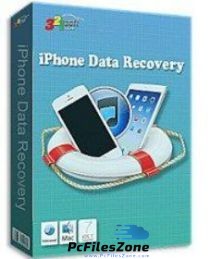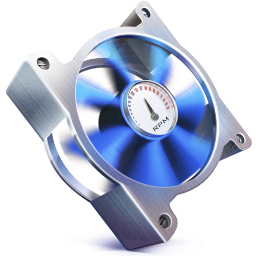Using the cash method for income taxes is popular with businesses for two main reasons. First, the method of accounting easily allows businesses to answer questions regarding annual revenue, expenses and financial losses. And for businesses that focus on inward cash flow, it is easier to align earnings with important dates, making it easier to pay taxes on time.
This method makes it easy to keep the unique situation of each sale or bill up to date, making adjustments when each item is satisfied or keeping notes of anything still outstanding. So, if your business is a corporation (other than an S corp) with gross receipts of less than $25 million per year, you can consider cash accounting. That said, cash accounting is better suited for businesses that don’t carry inventory. Accrual accounting might be the better choice if your business handles extensive inventories.
Smith & Co uses the raw materials to create widgets, which it sells for £3,000 to another company. As a result, an investor https://quickbooks-payroll.org/ might conclude the company is making a profit when, in reality, the company might be facing financial difficulties.
- Understanding the key differences between cash and accrual accounting, as well as their impact on financial statements and tax implications, helps businesses select the right method.
- It’s also hard to get business financing if you’re using cash basis accounting because it’s difficult to see the financial health of the company.
- In other words, the revenue earned and expenses incurred are entered into the company’s journal regardless of when money exchanges hands.
The cash accounting method is excellent for seeing the financial health of your company at a given time, but it fails to provide a complete picture. So now you know the difference between cash basis versus accrual accounting, it should be a bit clearer for you as to which accounting method you should use for your business. To use cash basis accounting, you need to tell HMRC on your Self Assessment tax return. However, the cash basis method might overstate the health of a company that is cash-rich.
Accrual Basis Accounting Method
At times, it makes sense for businesses to use both cash and accrual accounting. If you manage inventory or make more than $5 million a year, accrual-basis accounting is the only method for you. Accrual-basis accounting is the more complicated method, but it’s also more accurate. Plus, most accounting software defaults to it anyway—you’ll definitely want to familiarize yourself how to create debit memo in sap with the method, but you can leave a lot of the technical details up to your software. If accrual-basis accounting doesn’t measure how much cash is physically in your bank account, how is it more accurate than the cash method? Because instead of hyper-focusing on the exact time a transaction occurred, it focuses on what you earned and what you owed in a given period.
Many small businesses opt to use the cash basis of accounting because it is simple to maintain. It’s easy to determine when a transaction has occurred (the money is in the bank or out of the bank) and there is no need to track receivables or payables. With accrual accounting, you record income and expenses as they are billed and earned. Most agricultural businesses use cash accounting to balance out volatility in the agricultural markets and manage operations consistent with cash flow. If farmers have to switch to accrual accounting, it would penalize them in an industry with high price volatility, rising production costs, and thin margins.
Accrual Accounting
Larger companies are required to use the accrual method of accounting if their average gross receipt of revenues is more than $25 million over the previous three years. If a company does not meet the average revenue requirement, it can choose to use cash basis or accrual as its accounting method. The cash method of accounting certainly has its benefits, including ease of use and improved cash flow.
Accrual-basis accounting
Accrual accounting also conforms to GAAP and is required by all companies that make more than $25 million annually. While $25 million is a lofty goal for small businesses, choosing the accrual method means that you won’t have to change your accounting method in the future due to expansion. Accrual accounting is also required by some banks regardless of business income. Under accrual accounting, firms have immediate feedback on their expected cash inflows and outflows, making it easier for businesses to manage their current resources and plan for the future. In cash-basis accounting, the main difference is that the cash value shown on the balance sheet represents the actual amount of cash in the company’s bank account.
This method records financial transactions when they are incurred, rather than when the cash is exchanged. This approach allows for better matching of revenues and expenses in a given accounting period and provides a more insightful understanding of the company’s long-term financial performance. Cash basis accounting is a simple and straightforward method, focusing on the business’s cash flow. This method is often preferred by small businesses because it is easy to understand and provides a clear picture of the funds available in the bank account. However, this method may not accurately represent the overall financial situation, as it doesn’t take into account unpaid invoices or expenses. In summary, both cash basis and accrremaining accounts report revenue and expenses differently.
Accrual accounting is usually compared to cash basis of accounting, which records revenue when the goods and services are actually paid for. A company buys $700 of office supplies in March, which it pays for in April. With the cash basis method, the company recognizes the purchase in April, when it pays the bill. Whereas with the accrual basis accounting, the company recognizes the purchase in March, when it received the supplier invoice. With this method, you record income as it’s received and expenses as they’re paid.
With Decimal handling daily reconciliations, you can understand the current state of the business without having to invest the time. Companies that adhere to GAAP compliance will have to adopt accrual accounting. However, the average annual gross receipts threshold plays a significant role in determining whether a company is required to follow GAAP. In other words, the revenue earned and expenses incurred are entered into the company’s journal regardless of when money exchanges hands.
Cash basis accounting is mainly used by small businesses that need to keep track of their cash flow at all times. It tends to be easier as there generally is less to track; many small businesses and a large portion of Decimal Core clients use this method because of its simplicity. Cash-based accounting is particularly suitable for businesses that use cash regularly, such as retail, or primarily deal directly with individual customers (B to C).
According to GAAP, if you exceed $25 million in annual revenue, then you are required to use the accrual method. For many small businesses, this isn’t an issue at the moment but maybe in the future, so it’s something to keep in mind. Accrual accounting is the winner if you’re looking solely at popularity, as it’s the most widely used as well as the most accurate when it comes to portraying a holistic view of a company’s financial health.
That being said, accrual accounting can be more complicated to manage, especially for small businesses without dedicated accounting teams. However, it is essential for businesses that want to better understand their financial position and make informed decisions based on accurate data. Accrual records payments and receipts when services or good are provided or debt is incurred. Accrual accounting can be contrasted with cash accounting, which recognizes transactions only when there is an exchange of cash. Additionally, cash basis and accrual differ in the way and time transactions are entered.
It’s also easy to see where your business stands financially at any given time and calculate cash flow metrics. For investors, it’s important to understand the impact of both methods when making investment decisions. The vasty majority of companies that people would potentially invest in, will be using accrual-based accounting. However, should you come across a small company using cash-based accounting, it’s definitely something to watch out for.




Comments